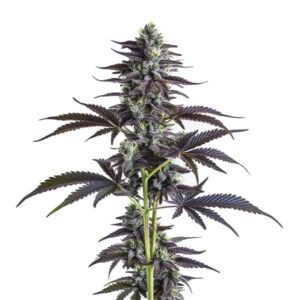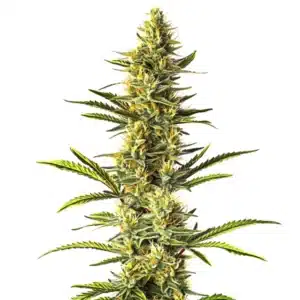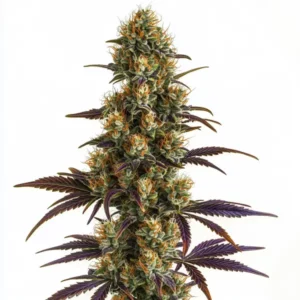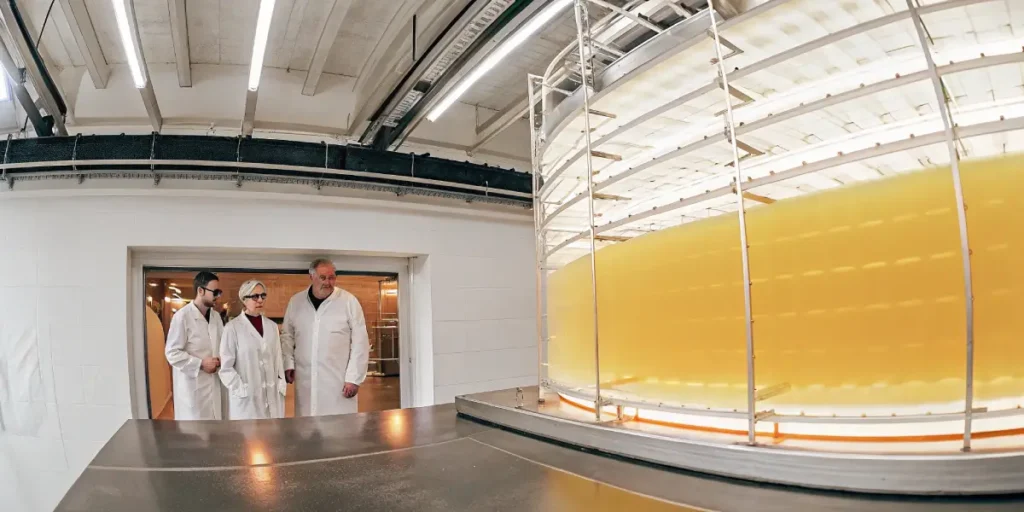
Lab Methods for Cannabinoid Bioconversion
When it comes to lab methods for cannabinoid bioconversion, the process is both fascinating and complex. This transformation often occurs in high-tech labs, where scientists work to convert cannabinoids from one form to another. These lab-based transformations are crucial for creating new cannabis products with tailored effects and benefits.
One common technique involves using microbial bioconversion of cannabinoids in lab settings. This process employs microorganisms to alter the chemical structure of cannabinoids. Think of it like using tiny factory workers who specialize in tweaking compounds to perfection. This method is known for its efficiency and precision.
Recommended Strains
Banana Punch
-
THC: 17% - 20%
-
Type of seed: Feminized
-
Phenotype: 45% Sativa / 55% Indica
-
Flavor: Apple, Banana, Pine, Pineapple, Sweet, Tropical
-
Day to flower: 8 - 10 weeks
Banana Sherbet
-
THC: 22% - 26%
-
Type of seed: Feminized
-
Phenotype: 30% Sativa / 70% Indica
-
Flavor: Banana, Citrus, Sweet
-
Day to flower: 8 - 10 weeks
Another approach is to utilize enzymatic pathways for cannabinoid bioconversion in labs. Enzymes act like catalysts that speed up chemical reactions, allowing for faster and more controlled transformations. This method is often favored for its ability to produce specific cannabinoid profiles.
Microbial Bioconversion Techniques
Microbial bioconversion techniques in laboratories offer an innovative way to transform cannabinoids. By employing various strains of bacteria or fungi, scientists can achieve specific conversions that might be difficult through traditional chemical means. This is particularly useful for producing rare cannabinoids.
For example, certain strains of microbes can convert CBD into THC or vice versa. This is a game-changer for creating tailored cannabis products. The process is not only efficient but also environmentally friendly, minimizing the need for harsh chemicals.
The versatility of microbial bioconversion of cannabinoids in lab settings cannot be overstated. It allows researchers to explore a wide range of cannabinoid transformations, opening up new avenues for product development. This adaptability is crucial in an industry that thrives on innovation and consumer demand for diverse products.
Moreover, the eco-friendly nature of microbial techniques aligns with the growing trend towards sustainability in the cannabis industry. By reducing reliance on synthetic chemicals and fostering a more natural conversion process, these methods contribute to a greener future.
Applications and Benefits
Microbial methods are employed to produce high-quality cannabinoids with desired effects. For instance, growers interested in specific strains like Banana Kush can benefit from these techniques by enhancing specific cannabinoid levels.
This method also allows for large-scale production. Imagine being able to produce gallons of cannabinoid-rich oil with the desired profile, ready for creating top-notch products. This scalability is a key advantage.
In addition to scalability, the precision offered by these techniques is invaluable. Producers can fine-tune the cannabinoid profiles to meet exact specifications, ensuring that consumers receive products that deliver consistent and targeted effects.
Furthermore, the ability to produce rare and novel cannabinoids opens up new possibilities for medical research. Scientists can study these unique compounds in greater detail, potentially leading to groundbreaking discoveries in cannabis-based therapies.
Promos & Deals
Enzymatic Pathways in Labs
Optimizing lab methods for cannabinoid transformation through enzymatic pathways is another exciting field. Enzymes are naturally occurring proteins that accelerate chemical reactions. In the lab, they are used to make specific changes to cannabinoid structures.
This approach is renowned for its precision. Scientists can select enzymes that target specific bonds within the cannabinoid molecules. This allows for the creation of highly specialized products with consistent quality.
Enzymatic pathways for cannabinoid bioconversion in labs offer a level of specificity that is difficult to achieve through other methods. By carefully selecting and engineering enzymes, researchers can manipulate cannabinoid structures at a molecular level.
This precision is particularly beneficial for developing therapeutic products, as it ensures that the desired effects are consistently achieved. As a result, patients can rely on these products for their intended benefits, enhancing their overall treatment experience.
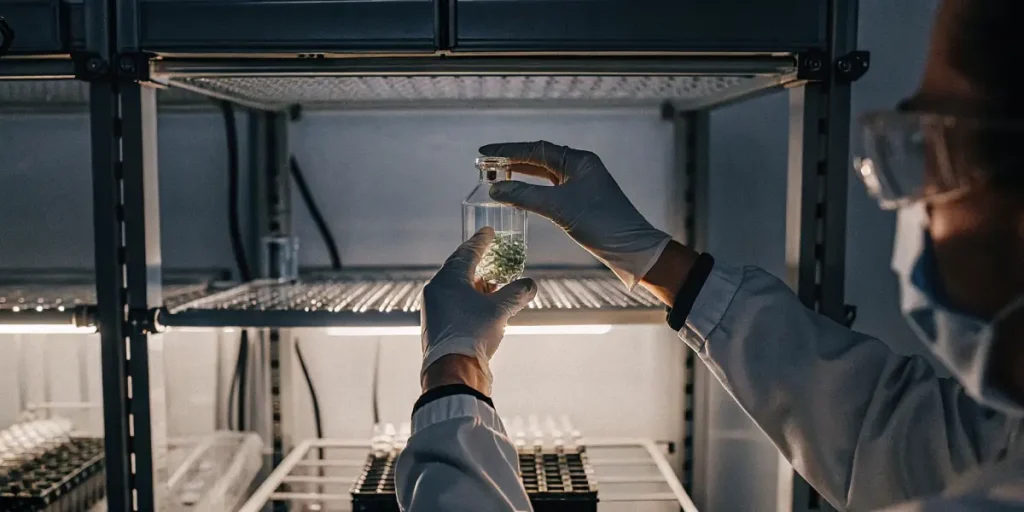
Real-World Examples
Imagine a lab working on the Blue Dream strain. By employing enzymatic pathways, they could enhance certain cannabinoids to heighten the strain’s calming effects. This can be particularly appealing to consumers seeking specific benefits.
These advanced lab procedures for cannabinoid bioconversion also play a critical role in research. By altering cannabinoid profiles, scientists can study their effects more precisely, leading to new insights into cannabis’s potential benefits.
In practice, real-world applications of enzymatic pathways have already demonstrated their value. Producers can create strains with enhanced therapeutic properties, catering to consumers with specific health needs or preferences.
Moreover, the predictability and repeatability of enzymatic processes make them an attractive option for large-scale production. This ensures that products remain consistent in quality, helping brands build trust and loyalty among their customers.
Advanced Lab Procedures
Advanced lab procedures for cannabinoid bioconversion involve a combination of microbial and enzymatic techniques. By integrating both methods, labs can achieve more complex transformations, leading to innovative cannabis products.
These procedures are typically conducted in controlled environments, where variables such as temperature, pH, and microbial population are meticulously managed. This ensures that the bioconversion process is both efficient and safe.
Leveraging advanced lab procedures for cannabinoid bioconversion allows scientists to push the boundaries of what’s possible in cannabis research. By combining multiple techniques, they can develop new strains and products that offer unique and desirable effects.
Furthermore, these procedures enable a holistic approach to cannabinoid transformation. By optimizing lab methods for cannabinoid transformation, researchers can fine-tune every aspect of the process, ensuring that the final product meets the highest standards of quality and efficacy.
Strain-Specific Transformations
Consider the Green Crack strain. By using advanced lab techniques, labs can tweak its cannabinoid profile to enhance its energizing effects. This kind of transformation is invaluable for tailoring products to specific consumer needs.
These lab methods also support sustainability. By reducing waste and using eco-friendly processes, labs contribute to a greener industry. This is increasingly important to both consumers and producers.
Strain-specific transformations provide a competitive edge in the market, allowing producers to create signature products that stand out. By focusing on consumer preferences, labs can develop strains that deliver exactly what users are looking for.
This customization also supports the medical cannabis sector, where specific cannabinoid profiles can be tailored to address particular health conditions. As research continues to advance, the potential for personalized cannabis therapies becomes increasingly achievable.
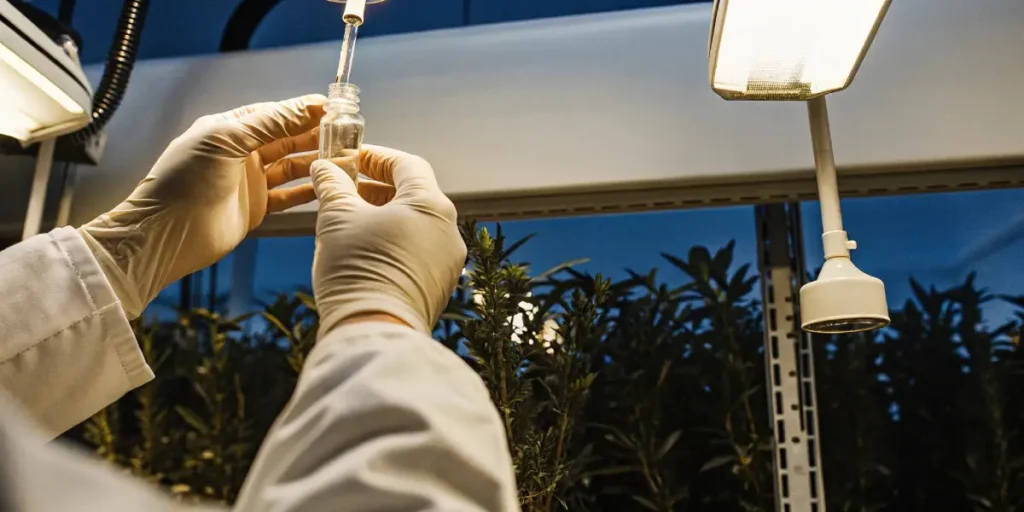
FAQs
What are lab methods for cannabinoid bioconversion?
Lab methods for cannabinoid bioconversion refer to techniques used to transform cannabinoids into different forms. This can involve microbial processes or enzymatic pathways to achieve specific outcomes. These methods are essential for creating diverse cannabis products with unique effects.
By employing these techniques, labs can produce cannabinoids that might not naturally occur in large quantities. This expands the range of products available to consumers and allows for tailored effects, which can be particularly beneficial for medical purposes.
The integration of various lab methods for cannabinoid bioconversion also facilitates innovation. Labs can experiment with different approaches to develop products that cater to emerging trends and consumer demands.
As the industry continues to evolve, these methods will play a crucial role in driving growth and differentiation. By staying at the forefront of bioconversion techniques, labs can maintain a competitive advantage and continue to deliver cutting-edge products.
How do microbial bioconversion techniques work?
Microbial bioconversion techniques involve using microorganisms to alter the structure of cannabinoids. These microorganisms act like tiny chemical factories, converting cannabinoids into desired forms. The process is efficient, scalable, and eco-friendly.
These techniques are often used to produce rare cannabinoids or to modify existing ones for specific effects. By optimizing conditions within the lab, such as temperature and microbial strains, scientists can achieve precise conversions tailored to consumer needs.
The use of microbial bioconversion techniques in laboratories offers unparalleled flexibility. Scientists can experiment with different microbial strains to achieve a wide array of transformation outcomes.
This adaptability is essential for meeting the diverse needs of the cannabis market. Whether the goal is to enhance flavor profiles or increase therapeutic benefits, microbial techniques provide a versatile solution.
Why are enzymatic pathways important in labs?
Enzymatic pathways are crucial for their ability to precisely alter cannabinoid structures. Enzymes are like biological catalysts that speed up chemical reactions. In labs, they allow for targeted modifications to cannabinoids, creating products with consistent quality.
This precision is invaluable for brands looking to offer reliable products. Moreover, enzymatic processes are generally cleaner and more sustainable than traditional chemical methods, aligning with industry trends towards eco-friendly practices.
Enzymatic pathways for cannabinoid bioconversion in labs provide a level of control that is unmatched by other methods. Scientists can tailor the enzymatic reactions to achieve specific outcomes, ensuring that each batch meets the desired specifications.
This control is particularly important for maintaining product consistency, which is a key factor in building consumer trust. As more consumers seek reliable and predictable cannabis experiences, enzymatic pathways will continue to gain prominence.
Can lab methods enhance specific cannabis strains?
Yes, lab methods can significantly enhance specific cannabis strains. By applying microbial or enzymatic techniques, labs can tweak the cannabinoid profiles of strains like Banana Kush or Blue Dream to emphasize certain effects, such as relaxation or energy.
This customization allows producers to cater to consumer preferences more effectively. Whether it’s for recreational use or medical applications, these enhancements can make a big difference in the user experience.
Enhancing specific strains through lab methods also allows producers to differentiate their offerings in a competitive market. By highlighting unique effects or benefits, they can attract niche consumer segments and build brand loyalty.
Furthermore, the ability to modify cannabinoid profiles opens up new possibilities for research and development. Scientists can explore how different combinations and concentrations of cannabinoids impact the user experience, leading to new product innovations.
Are advanced lab procedures sustainable?
Advanced lab procedures for cannabinoid bioconversion often prioritize sustainability. By using methods that reduce waste and minimize the use of harmful chemicals, labs contribute to a more environmentally friendly industry.
These procedures also support the use of renewable resources, such as microbial and enzymatic pathways. As the cannabis industry continues to grow, the emphasis on sustainability will likely become even more pronounced, benefiting both producers and consumers.
Incorporating sustainable practices into advanced lab procedures reflects a broader industry trend towards environmental responsibility. Consumers are increasingly seeking products that align with their values, making sustainability a key differentiator.
By adopting eco-friendly methods, labs not only reduce their environmental footprint but also enhance their reputation among conscientious consumers. This commitment to sustainability can lead to long-term benefits, including increased customer loyalty and market share.

